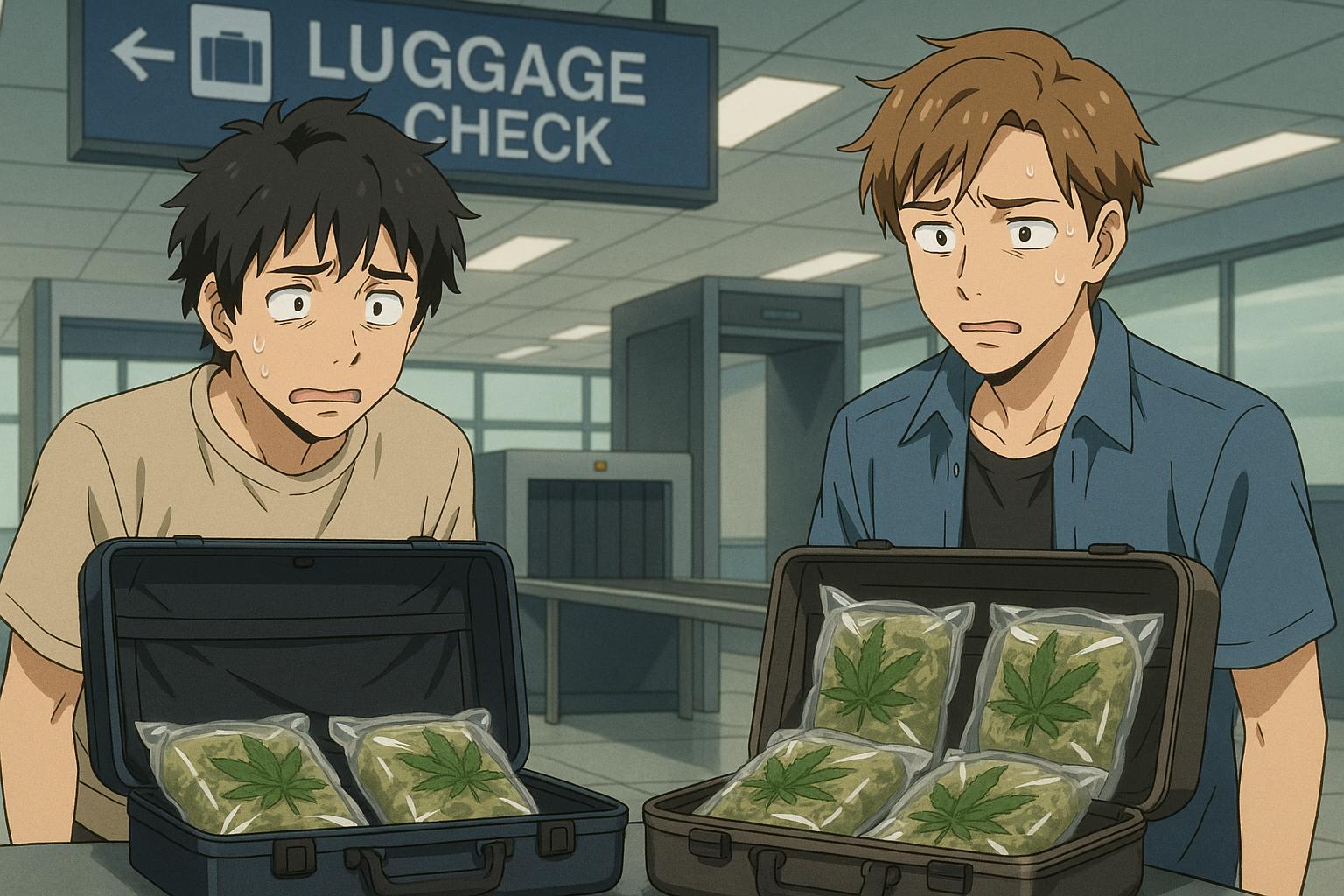Two young men, Lewis Ellis and James Poutch, recently found their much-anticipated three-week holiday in Thailand marred by legal troubles upon their return to the UK. The pair, both 20, were stopped by police at Manchester Airport, where a shocking 37 kilograms of cannabis was discovered in their luggage. This incident underscores a growing trend of foreign tourists unwittingly becoming involved in international drug smuggling operations, particularly from countries like Thailand where cannabis laws have become more permissive.
Ellis candidly admitted to officers, "I have cannabis in my bag, I may as well tell you because you're going to see it," revealing the naivety that surrounded their actions. The prosecutor in their case, Georgia Kennedy-Curnow, detailed how each man was responsible for significant amounts—19.83 kilos found with Ellis and 17.22 kilos with Poutch. Their attempt to bypass legal restrictions on class B substances resulted in suspended sentences, which a judge described as a result of their “naïve and stupid” choices. Hollering the gravity of their situation was defence lawyer Simon Hustler, who characterised their actions as uninformed and reckless, highlighting that both men funded the trip largely with the allure of Thailand’s Water Festival in mind.
The rise of cannabis smuggling among tourists has been documented in recent years, particularly by the National Crime Agency (NCA), which reported a staggering tripling of cannabis confiscations in UK airports from 2023 to 2024. Approximately 15 tonnes of cannabis were seized last year, driven by profits from legalised cannabis markets abroad. These enticements often lead unsuspecting holidaymakers into perilous undertakings, as many are misled to believe that only light penalties await them should they face legal repercussions. What might seem a trivial gamble can often come with severe consequences: the maximum penalty for importing cannabis into the UK is a hefty 14 years in prison.
Incidents similar to Ellis and Poutch’s highlight that they are far from isolated. In March 2025, Thai authorities at Samui International Airport seized 140 kilograms of cannabis from a group of British nationals, indicating a deepening involvement of foreign tourists in drug trafficking. These tourists, often lured by minimal upfront costs, become pawns in larger drug syndicates profiting from smuggling operations between Southeast Asia and the UK. Reports suggest that tourists are frequently groomed by criminal gangs, who provide them with a free trip to Thailand and packages stuffed with cannabis meant for transit through international hubs like Singapore.
The implications of such operations are grim not just for the individuals ensnared but for broader international drug policy. Organised crime has adapted to exploit legalised markets, leading to increased arrests and severe legal ramifications for many involved. The cases of Ellis and Poutch, alongside others recently highlighted by authorities, serve as stark reminders that innocent-looking holidays can spiral into life-changing consequences.
In 2024 and beyond, UK authorities have ramped up efforts to combat this trend, with nearly 27 tonnes of cannabis being intercepted—an alarming fivefold increase from the previous year. The chilling details of these operations also include sophisticated tactics, drawing comparisons to methods used by more organised crime syndicates, as seen in cases where family members are unknowingly used to mask smuggling attempts.
Ultimately, the narrative behind Ellis and Poutch’s holiday disaster is far more significant than a moment of poor judgment. It reflects the complexities of modern drug trafficking and the risks that unsuspecting tourists face in an interconnected world where the fine line between leisure and criminality is perilously thin.
Reference Map:
Source: Noah Wire Services
